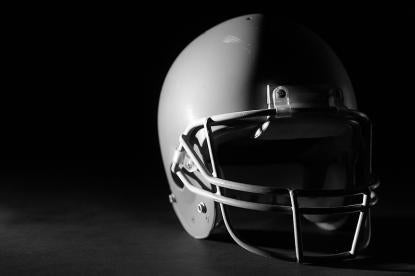Legal proceedings involving mass murders and lurid sexual escapades get lots of media attention.
Trademark cases? Not so much.
That’s part of what makes the case of Blackhorse v. Pro Football, Inc., fascinating. It’s a trademark cancellation proceeding seeking to revoke six federal service mark registrations that include the word “Redskins” with reference to Washington, D.C.’s professional football team. The issue has attracted a lot of attention; you might even say it has become something of a political football (sorry, couldn’t help myself).
Whatever your views may be on the underlying issue of whether the use of “Redskins” as a team name and mascot is inappropriate and should be outlawed – and I will keep my own views to myself – there are at least two aspects of the case that are worth noting.
One is the fact that the case is pending, not in a federal court, but in the Trademark Trial and Appeal Board, the administrative tribunal of the U.S. Patent and Trademark Office. The TTAB hears appeals from trademark owners whose applications to register their marks have been denied. It also adjudicates pre-registration “opposition” proceedings against applications that the Trademark Office has approved, as well as “cancellation” proceedings against registrations that have already been issued.
Losing an opposition or cancellation proceeding does not mean that a trademark owner has to stop using its mark; the TTAB has no authority to issue injunctions (or, for that matter, to award money damages). Losing in the TTAB only denies registration of the marks – which can be a significant penalty, especially for marks, like those at issue in the Blackhorse case, that are exploited for licensing purposes. I sometimes recommend a TTAB proceeding as a relatively inexpensive enforcement option for clients wary of the angst and expense of a federal lawsuit.
This leads to the second noteworthy aspect of the case, which is that the federal Trademark Act is the only intellectual property statute that includes what amounts to a censorship clause. It provides for denial of registration to material that:
…consists of or comprises immoral, deceptive, or scandalous matter; or matter which may disparage or falsely suggest a connection with persons, living or dead, institutions, beliefs, or national symbols, or bring them into contempt, or disrepute…
15 U.S.C. § 1052(a). (Note that this statute was enacted in 1945, long before anyone had ever heard of political correctness.)
Of course, books and movies that contain rank obscenity and vile hate speech are routinely granted registration by the Copyright Office, and no one seems to think a thing about it. And the Patent Office routinely grants patents for devices whose uses may strike at least some people as objectionable.
Every year I ask my law school students whether they think a J.D. degree and a single course in trademark law qualifies them to render an official judgment on what is, and is not, “immoral” or “scandalous.” They find the very idea preposterous. But those are the only credentials that the examining attorneys in the Trademark Office have, and they perform this function as part of their regular job description.
The TTAB’s decision in Blackhorse won’t resolve the issue of whether the Washington Redskins need to change their name. But it will impact the commercial value of the Redskins trademarks, at least to some extent; and it will no doubt have more than a little public relations impact. Final trial briefs were filed more than a year ago, and oral arguments were heard way back in March; a decision is expected – oh, any old time now (this is an agency of the federal government we’re talking about, after all). Stay tuned…




 />i
/>i

